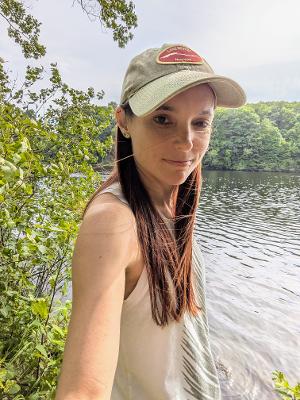5 Essential Life Skills Double H Ranch Campers Learn at Camp
Please note, this is a sponsored article from 2019.
At Double H Ranch in Lake Luzerne, a camp for kids with serious illnesses, campers not only experience the classic summer camp adventure but also develop crucial life skills. Campers are empowered to try new challenges, take control of their own medication, socialize with peers experiencing struggles similar to their own, and achieve feats they may have never thought possible.
We've highlighted below five skills campers learn at Double H Ranch -- independence, self confidence, social skills, teamwork, and leadership -- to showcase this great organization and the amazing kids who attend camp there.
1) Independence
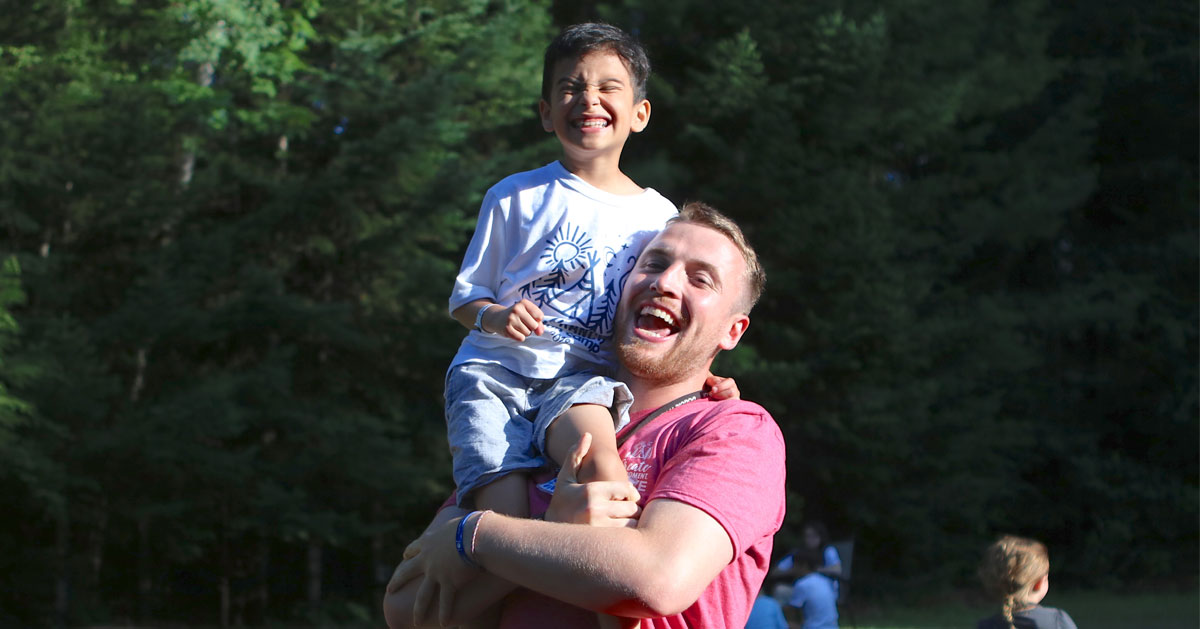
For many kids at Double H Ranch, the summer camp experience will be the first time they've been away from home, due to their extensive medical needs.
In their home environment, they've always had help taking care of themselves. They will have assistance at camp too from counselors, cabin nurses, and doctors, but campers are encouraged to take control of their own care.
For instance, a camper with hemophilia might learn to give themselves injections of medicine on their own.
"Sometimes kids have never done that for themselves," Jenica O'Malley, Alumna Counselor and Camp Doctor, said. "The parents have always done it, or someone helped, and they come to camp and it's like, 'Hey, you can do this for yourself!' Then they leave and they're able to do it, and that's huge for someone who's medically always under the watch of someone."
Director of Operations, Jacqui Royael, has a son at Double H and she agrees with this notion of independence: "When I'm with him I'm managing his medical care. And we have nurses and staff for doing that. But he's able to find his voice and self advocacy with that care. It's a big piece of that deeper understanding of their own medical needs."
2) Self Confidence
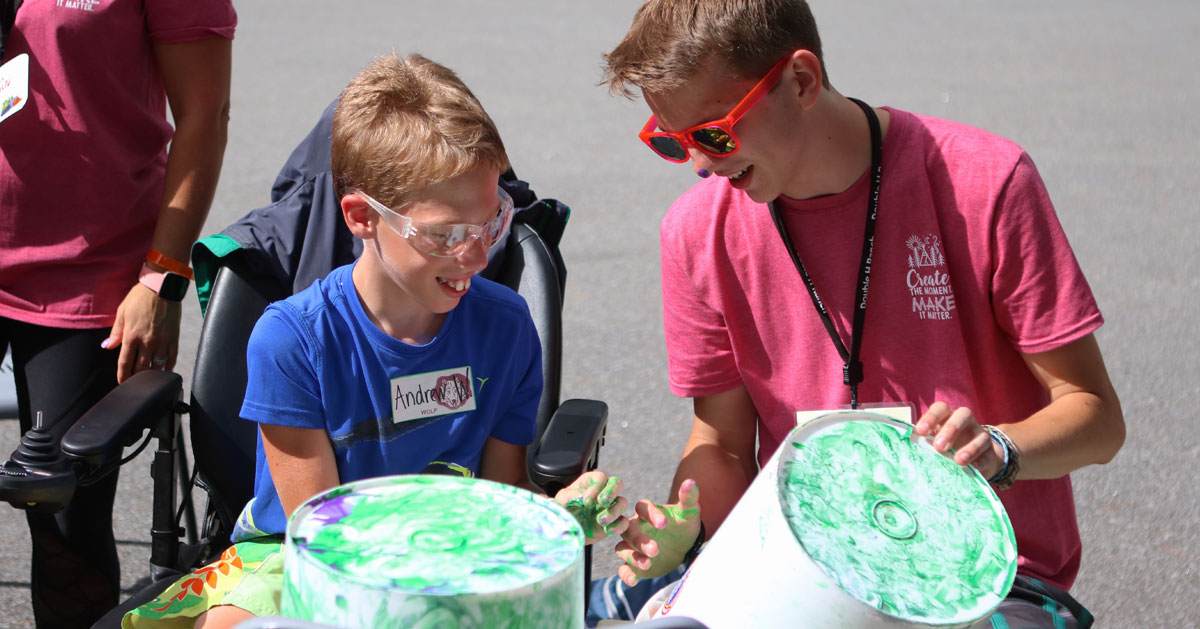
With independence, comes self confidence. "Camp teaches them that they can succeed free from their parents and do more than they thought possible," Jennifer Pearce, Camp Doctor, said.
Not only can campers take on more responsibility for themselves, but they can do things they never thought they'd be able to do - things other kids can do. Even kids with limited mobility can participate in activities they might not otherwise be able to.
"Everything is adaptive at camp," O'Malley explained. "If they have it they want everyone to be able to do it, whether it's high ropes or swimming or riding a horse. For some kids it's maybe the first time they've been able to go swimming. They have special floats, someone is going to stay right with them, but they're supported in being able to do it as independently as possible."
No one forces campers to do something they don't want to do. But there's a "challenging by choice" mentality that Double H adapts. They don't have to try it, but if they do, they might like it!
"There's never a second where anyone feels like they can't succeed at anything," O'Malley said.
3) Social Skills
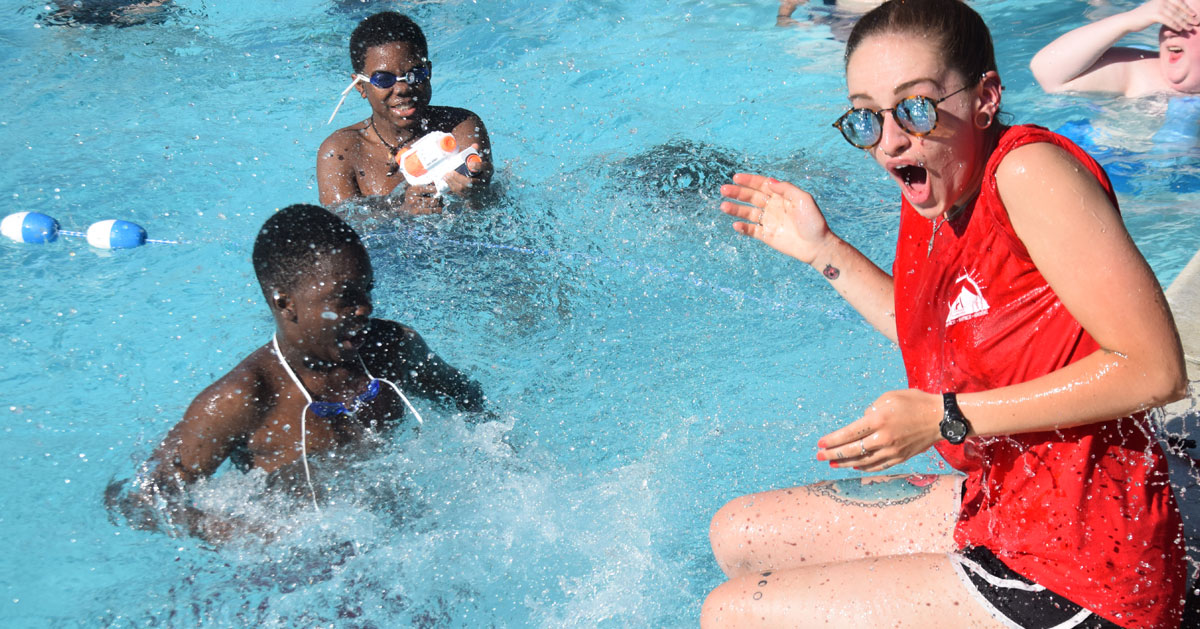
Double H campers can be socially isolated from their peers, from being in hospitals and missing days of school. They might look different from their peers, or perhaps they're the only one in their class or school who uses a wheelchair.
"They talk a lot, these kids at camp, they talk about their illnesses and how it affects them," Ray Walsh, Camp Doctor, told us. "They sort of realize they're not the only ones dealing with these problems and they develop a friendship. They exchange emails, become Facebook friends."
Walsh has seen kids come to camp shy and reserved, only to leave as outgoing, enthusiastic children with a new view on life and how to deal with the problems they face. "It helps them go back to 'the real world' with school and other activities," Walsh said.
4) Teamwork
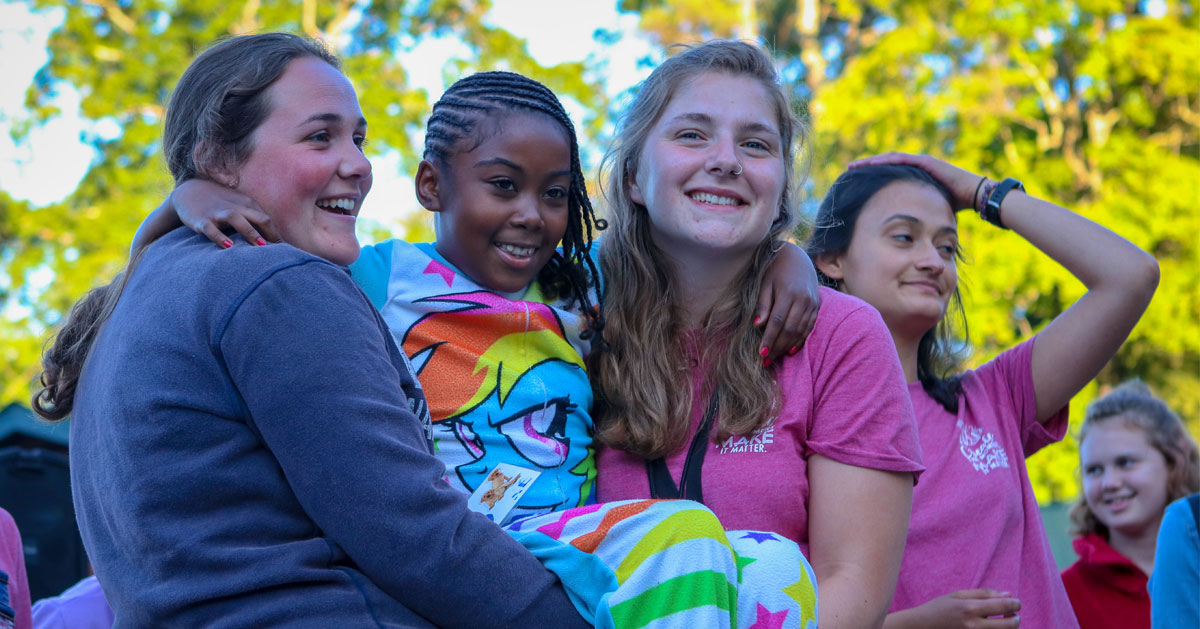
Teamwork is important at a place like Double H, where everyone works together to ensure all campers can participate in all activities, regardless of illnesses and restrictions.
"I think at 'regular' camps there is more competition between campers to be the better swimmer or archer or whatever," Pearce said. "At Double H everyone roots for everyone to be as successful as they can. Everyone celebrates the strides someone makes and each camper is celebrated for being the best they can be."
Walsh told us about witnessing teamwork firsthand at Double H his first year at camp nearly 30 years ago. Counselors and the ropes team worked together for about 45 minutes to help a child with spina bifida who uses a wheelchair go down the zipline - this is something she never thought she'd be able to do.
5) Leadership
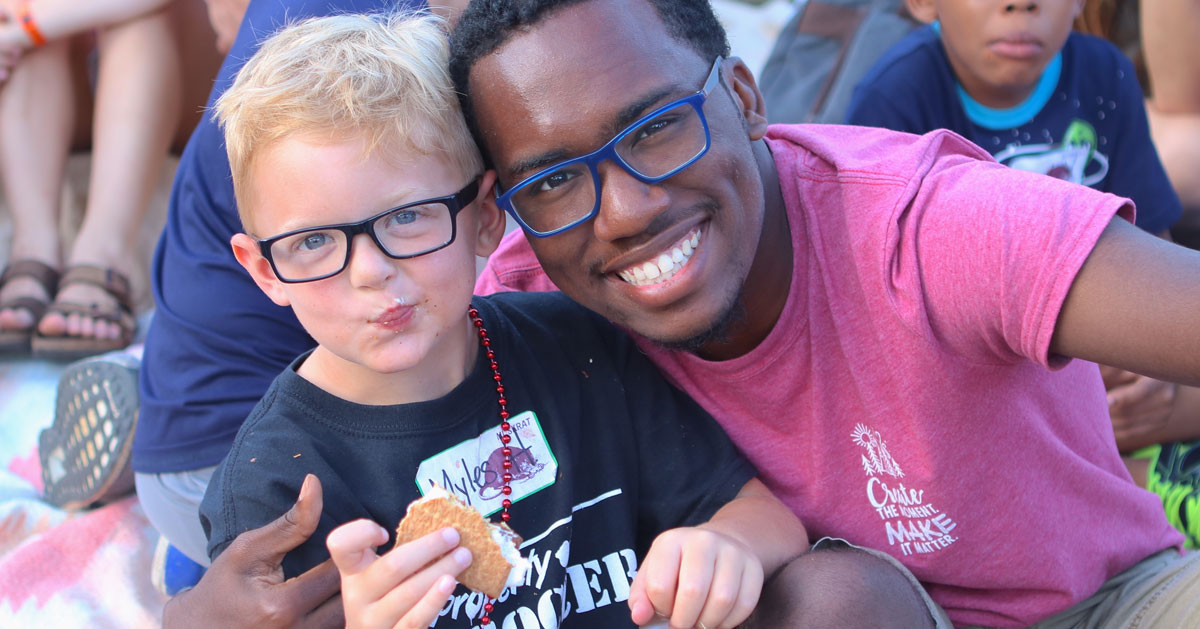
When it comes to leadership, the counselors at Double H lead the way and the campers take notice. They learn just by observing, and sometimes, by becoming counselors themselves.
Walsh knows of several campers who went on to embrace the counselor role, then became unit leaders, then went to med school, and continued on to work as a pediatric emergency physician, or a pediatric hematologist oncologist.
"What I've found over the years is many of the counselors who start out as campers enter a field where they deal with other people - medicine, nursing, social work," Walsh said. "I don't run into many who have been at Double H who go into big business and things like that. They're almost always involved in careers that try to make things better for people."
When the kids are at camp the counselors become their friends and confidants, and they see them in a position where they're leading a group around, or through an activity. As many get older, they want to emulate that.
While these skills are vital for any child to have, and to take with them as they continue to grow and learn throughout life, they're especially important for the Double H campers.
These kids endure medical challenges most adults don't ever have to face. Having the independence and self confidence to handle these problems, and to be able to connect with their peers and help others to do the same, is invaluable.
Learn more about Double H Ranch and how you can help »
« Back to the Summer Camp Guide
